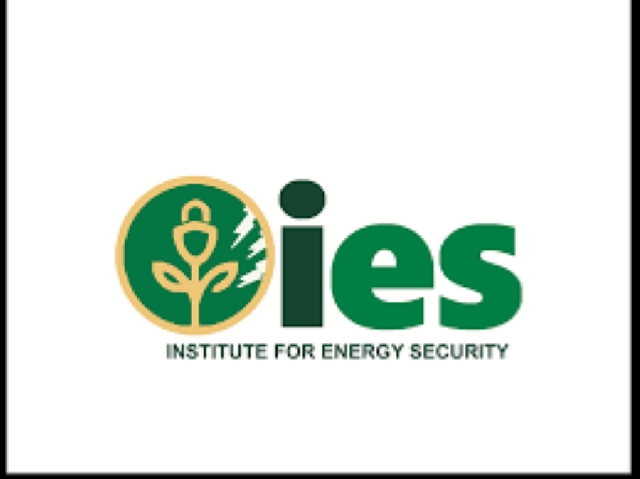Improve energy sector’s procurement processes – IES Analysts
 IES
IES
The manner in which independent power producers (IPPs) were engaged to shore up Ghana’s installed power capacity particularly during the 2012-2016 power crises remain an issue that would be discussed for a very long time. The structure of power purchase agreements (PPAs) signed during this period is still blamed as a contributor to the power sector debts.
Also, the process by which Ghana’s Energy Ministry sought to contract a third party to take over the operation of the AMERI power plant in July 2018 is known to have nearly caused the country over US$1 billion for needless work. The lack of due diligence characterizing the re-negotiated agreement would have over-burden the Ghanaian with a high cost of electricity, had the take-over been allowed to pass.
Talk of the botched PDS-ECG deal. It brought the country a lot of embarrassment, and huge financial costs. Even though the Millennium Development Authority (MiDA) is said to have undertaken a competitive procurement process to select Manila Electric Co. (Meralco) to manage, operate and invest in Electricity Company of Ghana’s (ECG’s) operations for 20 years through a Concessionaire agreement, the waiver of substantial number of the conditions precedent, committing them as conditions subsequent, created a mess for the country. In the process, the PDS consortium took over the assets of the ECG, failing to carry out adequate “due diligence” to identify risks, and implement strategies to protect the assets of ECG before closing the contract.
These are but few examples of questionable procurements that have taken place in the country’s energy sector. They are just a few of the many reasons why the procurement processes in the energy sector must be improved to identify and select suitable service and goods providers. It is important because the sector assumes more significance due to the vital role of oil, fuel, or power et cetera to the economy. These commodities are deemed as enablers to goods and services that spur growth, achieve macro-economic stability, and reduces poverty levels.
Because there would constantly be the need for investments in the power and petroleum sectors via varied projects to ensure sustainable and cost-effective supply of these essential commodities, policy and decision makers must make it a point to improve on current processes to derive value for money at all times. As it stands now, the sector’s procurement process often gives way to non-transparency and political interventions. Most often the sector have turned to sole-sourcing/restrictive tendering, and other doubtful methods, as against other transparent procurement models and methods to select vendors who are most fit to perform a given undertaking. Decision-makers within the energy space must appreciate the potential value of the procurement function, and shy from traditional methods of sourcing for contractors.
Procurement must be seen as a strategic function, aimed at improving organizational profitability, minimizing costs, and identifying better supply sources. Transparency, objectivity, fairness, time and cost-effective decision making are essential ingredients in procurement procedures, for a proper economic system in which prices are determined by unrestricted competition.
Once the conditions of the competitions are set, the one issuing the bid and the bidders are required by law to keep to the rules to deliver a fair and transparent rankings. Any opportunistic behaviour may only seek to “game the system”. These are some of the basis why procurement remain a significant source of risk for key sectors of the economy, including the energy sector.
Contractors and public officials must not see the qualifying procedures they are obliged to follow as time consuming and wasteful. The qualification, together with the evaluation criteria, largely influences the end result of the tender process and the success of the project. Lack of experience and expertise on the part of handlers may result in inappropriate handling of the procurement process. Also, the professional ability of the contractor chosen to execute a project may impact on the overall success of the project; that is keeping the schedule within the estimated costs, time and quality.
Procurement handlers must therefore maintain a sufficiently competitive environment instead of resorting to restrictive tendering, because it can be assumed that the prices and capability achieved in the competitive tender will decrease with the increase of the number of bids submitted. Restrictive tender is known to promote corruption and cronyism, kills transparency, leads to the high cost of services arrangement, and ultimately does not does not yield “value for money”.
It takes only sound procurement practices to augment respect for energy sector organizations, while at the same time, attracting additional investments into the country’s energy space.
Source: classfmonline.com
Trending News

Cocobod trial: RM&E Dir. schools Chief State Attorney in court
10:55
Surrender Ghana to the Lord – Alan to Akufo-Addo gov't
13:42
Supreme Court declares as unconstitutional parliament’s approval of salaries, allowances for first lady, veep's wife
14:33
UW/R: I can’t’ve the man I defeated as my successor – Akufo-Addo tells Wa Naa
13:24
Economist adopts 13 constituencies to bolster NDC's chances in 2024
13:29
Galamsey: Five Burkina Faso nationals caged 20 years each for mining
09:31
Election stakeholders schooled on Internet shutdown
10:32
'It's disrespectful!' – Asogli State tackles gov't's 'no-consultation' move to rename Ho Tech. Uni. after Ephraim Amu
13:23
Lagos officials praise Jospong Group’s eco-friendly waste management module, eyes similar module
12:57
Dec 7 polls: Let’s stay united, do away with internal disputes – Asiedu Nketiah to NDC members
12:51



